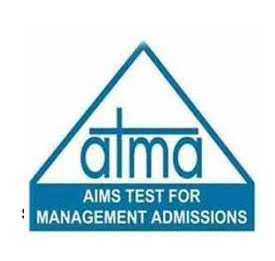PhD Microbiology is a 5-year Doctorate programme in the Biology domain. It is a research-oriented course that involves experimentation, data collection, publication, presentation, coursework, thesis writing, and viva. The course offers the opportunity to conduct research in various areas like environmental microbiology, medical microbiology, industrial microbiology, and microbial genetics.
The PhD in Microbiology fee ranges between INR 50,000 to 1,00,000/ year for a private institution. For government colleges/universities, the course fee is somewhere between INR 5,000 to 10,000 year. PhD Microbiology Positions are based on one’s interest in the research industry or academia. One can work as a professor in a university and also conduct research in academic endeavours, while industry jobs are focused only on R&D.
Table of Contents
- PhD in Microbiology Highlights
- What is a PhD in Microbiology?
- Why Pursue a PhD in Microbiology?
- Who should pursue a PhD in Microbiology?
- PhD in Microbiology Eligibility
- PhD in Microbiology Admission Process
- PhD in Microbiology Entrance Exam
- PhD in Microbiology Best Colleges in India
- PhD in Microbiology Syllabus
- PhD in Microbiology Fellowships
- PhD in Microbiology VS PhD in Biotechnology
- PhD in Microbiology Jobs & Careers
- PhD in Microbiology FAQs
PhD in Microbiology Highlights
Given below are some of the key highlights for the PhD Microbiology:
What is a PhD in Microbiology?
Doctorate of Philosophy in Microbiology is a postgraduate higher academic qualification that entails detailed investigation and study of microorganisms such as bacteria, viruses, fungi and parasites, among others. The course gives the student an excellent knowledge base in microbial genetics, physiology, immunology, and molecular biology as well as the ability to handle the common laboratory procedures and scientific reasoning.
The course is usually made up of coursework, a comprehensive examination and a dissertation based on original research. The graduates would be equipped to work at academic, research, biotechnology companies, pharmaceutical and public health, and help in resolving practical issues about the health, environment, and industry.
Why Pursue a PhD in Microbiology?
Pursuing a PhD in Microbiology ensures holistic development of the learner. It equips the aspirant with skills like analytical, observational, critical thinking, scientific writing, presenting, and managing multiple tasks in a limited timeframe.
- With a PhD in Microbiology, a learner acquires knowledge in the microbial world and also contributes to the existing literature.
- It offers a promising career as a scientist or academician and while pursuing a PhD, one can obtain a prestigious fellowship from the government agencies.
- It provides the opportunity to publish research papers and book chapters as an author.
- Such an authorship index credits additional benefits while applying for jobs in academia.
Who should pursue a PhD in Microbiology?
Individuals passionate about microorganisms and their role in health, the environment, and industry
- Those interested in conducting original scientific research
- Students aiming for careers in academia or as research scientists
- People who enjoy working in laboratories and using advanced technologies
- Candidates with a strong background in biology, biotechnology, or related fields
- Those who want to contribute to medical, environmental, or industrial microbiological advancements
PhD in Microbiology Eligibility
To be eligible for PhD Microbiology, one must have completed MSc Microbiology or equivalent Life Science degree with at least 55% (second class).
- Candidates will be required to qualify for an entrance exam at either the national or state level.
- Also, there will be an interview round where candidates have to present their research interests/ideas to the committee.
- Candidates who clear the exam and interview will be selected for the programme.
PhD in Microbiology Admission Process
The admission to PhD in Microbiology is based on the entrance exam scores of the candidates. Some of the major exams considered by the university are CSIR NET, UGC NET, ICAR NET, GATE, DBT, SET, RET, etc. For your reference, given below is the step-by-step admission process followed at UPES.
Step 1: The candidate first needs to fill out the application form online through the official website of UPES.
Step 2: Then, the candidate needs to appear for the UPES RET (Research Entrance Test) conducted by the University.
Step 3: The selected RET Candidates need to submit a 1000-word research proposal.
Step 4: The further selected candidates will be shared a link by the university, through which they can book interview slots. After booking up the slots, candidates need to appear for the interview round.
Step 5: The further selected candidates will be issued with offer letters, and they’ll need to submit the fees as per the date specified by the Institution. The institution will schedule an orientation program that the students need to attend.
PhD in Microbiology Entrance Exam
Given below are some of the entrance exams that are required for the PhD in Microbiology course. Let’s have a look at it:
PhD in Microbiology Best Colleges in India
There are many government and private universities that offer this course. Before taking admission, one should visit the college personally to ensure proper facilities, vacancies, and research approach of the institute.
PhD in Microbiology Syllabus
PhD in Microbiology is a research-based programme; there is no defined syllabus or curriculum for the course. But for your reference, provided below is the UGC listed syllabus for the Datta Meghe Institute of Medical Sciences. As per the UGC guidelines, each aspirant must undertake coursework during 1st or 2nd year of the PhD.
The flow of PhD Microbiology is as follows.
Coursework>Assessment>Literature review>Experimentation & data collection>Presentations>Viva Defense>Thesis Submission
PhD in Microbiology Fellowships
Students can avail fellowship from various government schemes. Eligibility and selection processes vary among the different schemes. In general, it includes 60% at the 10+2 level, submitting an application with SOP or Research Project/Proposal, Funding requirements/Details if you have funding, and Work Plan.
Some of the popular fellowship schemes are mentioned below.
- Single Girl Child Fellowship (for female candidates)
- Lady Tata Memorial
- ICMR JRF
- SHODH
- DST JRF
- PMFDR
- CSIR NET/JRF
- University-level fellowship
- DST-WISE Fellowship (for female candidates)
Clearing the CSIR NET JRF exam directly makes students eligible for a fellowship for 5 years.
PhD in Microbiology VS PhD in Biotechnology
Mentioned below is the comparison between a PhD in Microbiology and a PhD in Biotechnology:
PhD in Microbiology Jobs & Careers
Few jobs and their salary for PhD in Microbiology have been listed below
PhD in Microbiology FAQs
Qualifying NET required for PhD Microbiology admission?
No, one can qualify for another entrance exam like SET or GATE and apply for PhD in Microbiology. Those having no such qualification can qualify for the university-level entrance test.
What is the qualification for PhD in Microbiology?
The PhD in Microbiology degree program will normally require a Masters in Microbiology or a Microbiology-related related by at least 55 percent or some institutes also consider 4 year bachelors degree in a relative field and work experience.
Is it worth getting a PhD in Microbiology?
Microbiology PhD qualification is a worthwhile qualification to undertake based on advanced research, academic, biotechnology, pharmaceuticals, health sciences among others fields of study, it provides experts knowledge and potential in research and development field.
What is the duration of PhD in Microbiology?
Normally, the PhD in Microbiology take 3-5 years/depending on the university and research status, which comprises coursework, comprehensive exams, research, and a thesis.
How can I apply for a PhD Fellowship?
To apply for a PhD Fellowship, one has to go through the eligibility criteria and selection process of a particular scheme/agency. After that, if suitable, one has to fill out the application form and submit the research proposal with all requirements, work plan, and prospects. Based on the potential of the research and the eligibility of the candidate, the agency will grant the fellowship.











